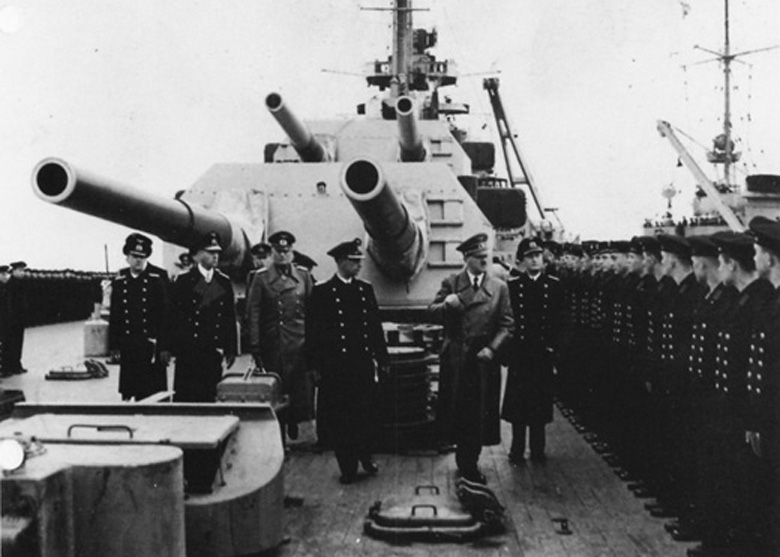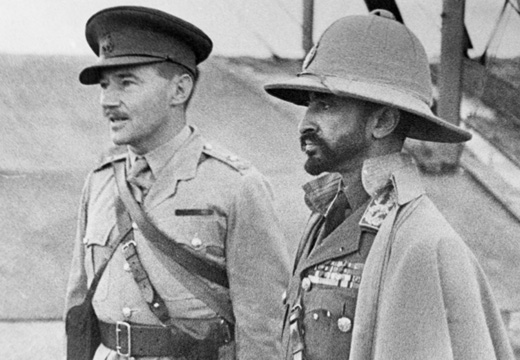Battle of the Atlantic
- U-38 sinks the British steamer Queen Maud (4976t) about 200 miles west of Freetown with the loss of 1 crewman. 43 survivors are picked up by the Portuguese steamer Mirandella.
- The British steamer Fair Head (1719t) is sunk by German bombing at Belfast with the loss of 2 of her crew.
Bismarck Inspection |
 |
The Blitz
Liverpool and Merseyside are hit in the fifth of seven consecutive night raids. (See May 7 for summary). Clydeside is also a target as 280 planes drop 350 tons of high explosives and 47,000 incendiaries in a three and one half hour raid. There is damage at Yoker, in Rothesay Docks and in John Brown's Shipyard at Clydebank.
[Crete
Gen Freyberg is appointed C-in-C Allied forces in Crete. He tells Churchill that he thinks it possible to repulse an attempted invasion of the island by sea or by paratroopers provided he receives enough artillery, tanks, trucks and fighter aircraft. The RAF, after their heavy losses in Greece, are unwilling to set up permanent bases in Crete; they will provide their support from airfields in North Africa. The Royal Navy, running the gauntlet of Luftwaffe attacks, succeeds in transporting to the island 16 light tanks and 6 armored cars. Everyone is fully alive to the strategic importance of Crete, 600 miles from Alexandria and only a little more that 200 miles from Tobruk. The British fear is for North Africa, the German for the threat to the oil wells in Ploesti by British aircraft based on Crete.
[Iraq
Iraqi troops abandon the heights around Habbinayah.
[Italian East Africa
On the fifth anniversary of the Italian occupation, Emperor Haile Selassie triumphantly returns to his capital, Addis Ababa. In the battles at Amba Alagi the Italian Middle Hill position is taken.
Emperor Haile Selassie Back in Addis Ababa |
 |
Mediterranean
- The British steamer Empire Song (9228t) of the TIGER is lost on a mine in the Narrows off Malta with the loss of 18 of her crew. Her survivors are rescued by the British destroyer Foresight.
- The British submarine Taku sinks the Italian steamer Cagiliari (2322t) in the Tyrrhenian Sea.
North Africa
During the night supplies are brought to the besieged garrison in Tobruk by destroyer for the first time. From now until the end of the siege 2 destroyers will be used on such missions on most nights and at about weekly intervals reinforcements will be brought in and the wounded evacuated. This operation is nicknamed the 'Tobruk Ferry'.
[Secret War
Tokyo advises the Japanese ambassador in Washington that it appears that the United States Government is reading their coded messages. This information is correct, but subsequent investigations in Tokyo and Washington led the Japanese to believe that their Purple diplomatic code was not compromised. No effort is made to change it. The source of Tokyo's concern was probably the German ambassador in Washington who had been confronted by the Russian ambassador who was given knowledge of the impending German attack on the Soviet Union. This information was probably passed on by U.S. Under Secretary of State Sumner Welles who had access to the Magic intercepts of the Purple code and was anxious to cause damage to Soviet-German relations.
[